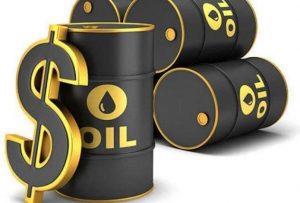Crude oil production in Nigeria fell by 6.32 percent to 1.344 million barrels per day in May, 2021 compared to 1.429 million barrels per day recorded in April 2021; latest data from the Organization of Petroleum Exporting Countries (OPEC) has shown.
The report also indicated that Nigeria’s average daily oil production in the first quarter of 2021 was 1.404mbpd compared to average daily oil production of 1.301mbpd recorded in the fourth quarter of 2020.
The production volumes are exclusive of condensate oil which is not part of OPEC reporting requirement.
Latest report by the Nigerian Extractive Industries Transparency Initiative (NEITI) showed that total oil production in 2019 was 735.244mmbbls, representing an increase of 4.87 percent over the 701.101mmbbls recorded in 2018.
The report showed that Production sharing contracts, PSCs, contributed the highest volumes of 312.042mmbbls followed by Joint Venture (JV) and Sole Risk (SR), which recorded 310,284mmbbls and 89.824mmbbls respectively. Others are Marginal Fields, MFs, and Service Contracts, SCs, which accounted for 21,762mmbbls and 1,330mmbbls respectively.
The report also showed that total crude oil lifted in 2019 was 735.661mmbbls, indicating a 4.93 percent increase to the 701.090 mmbbls recorded in 2018, with companies lifting 469.010mmbbls, while 266.650mmbbls was lifted by the Nigeria National Petroleum Corporation (NNPC) on behalf of the Federation. Analysis of crude oil lifted by NNPC showed that 159.411mmbbls was for export, while 107.239mmbbls was for domestic refining.
97 percent of the volumes for domestic refining (104.475mmbbls) was utilised for the Direct Sale Direct Purchase, DSDP, programme while the remaining 3 percent (2.764mmbbls) was delivered to the refineries.
A five-year analysis of crude oil production showed that the highest crude oil production (776.668mmbbls) was recorded in 2015 with a sharp decline to 659.137mmbbls in 2016. Subsequent years witnessed an increase in production.
According to the report, total crude oil production in 2017 was 690mmbbls, an increase of 4.5 percent over the 2016 production volume.
With Nigeria production showing no sign of improving and questions being asked about actual volume of oil proven reserves, the Federal Government has charged oil and gas companies to find more reserves.
The Minister of State Petroleum Resources, Timipre Sylva who spoke in Abuja, expressed Federal Government’s determination to boost Nigeria’s oil production to four million barrels per day.He explained that the marginal oil field licencing would push Nigeria towards its production target but called for collaboration in the industry, to reduce cost and logistics to meet the target.
He said: “This year’s NIPS comes on the eve of the award of new marginal field licences after several failed attempts over the past 20 years. I am personally delighted this is because getting these new set of marginal fields off the ground is definitely a stepping stone towards achieving the country’s aspiration meeting the target of four million barrels per day oil production and 40 billion of proven reserve.“ have no doubt that the country is on the right path”.
He noted that despite the ongoing energy transition across the globe, hydrocarbon resources would continue to lead energy sector in the nearest future.
He said Nigeria would continue to ensure conducive business environment for the industry players.


